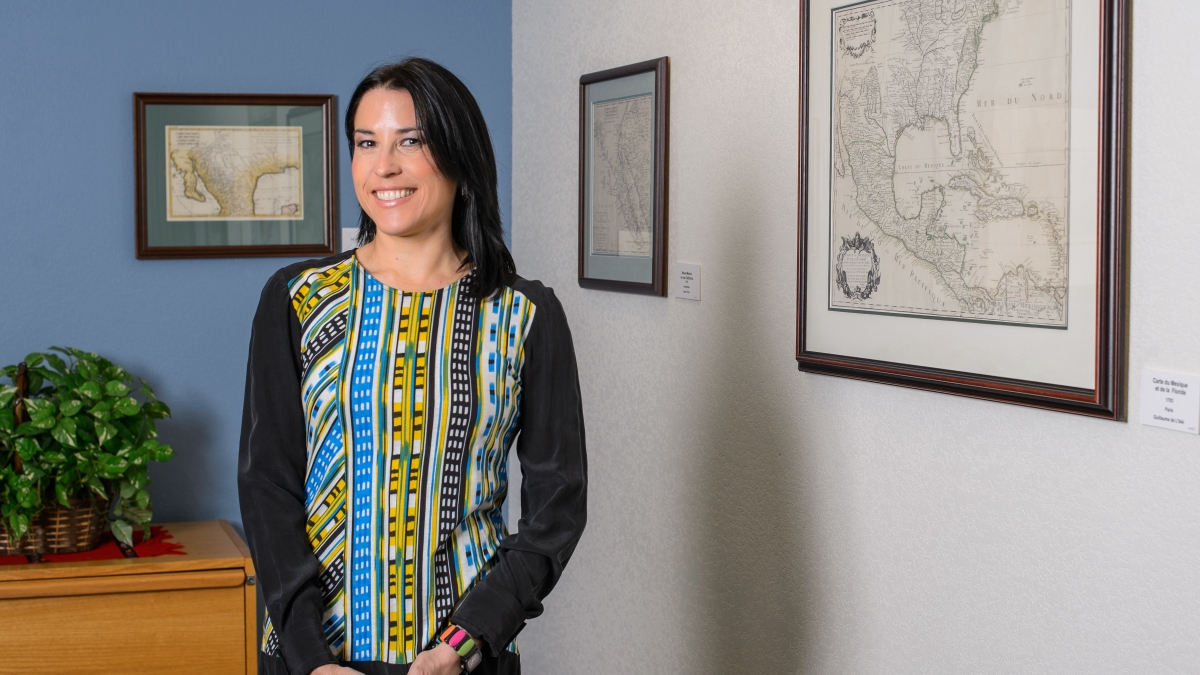Scholar discusses Latino culture, marketing and 'spin'

Urban ethnography expert Arlene Dávila is the featured speaker at the Comparative Border Studies Fall 2013 Scholar-In-Residence Colloquium at Arizona State University, from noon to 2 p.m., Oct. 18. Open to the public, the free event will take place at Hayden Library, room C-6, on the Tempe campus.
A professor of anthropology and American Studies at New York University, Dávila examines issues related to urban ethnography, the political economy of culture and media, creative economies and consumption, immigration and geographies of inequality, and race. In particular, the scholar and Puerto Rican native studies the ethnography of local, national and global dynamics of Puerto Rican and contemporary Latino/Latin American cultural politics.
Lunch is provided for all guests registered for the ASU colloquium, but space is limited. Reservations are required and can be made through Comparative Border Studies.
Dávila has authored five books and many articles on issues ranging from depictions of public images of Latinos, to marketing to Latinos, to cultural politics in Puerto Rico and Latinization of the United States. Her most recent book, “Culture Works: Space Value and Mobility Across the Neoliberal America,” considers the growing rentability of culture and the arts in contemporary Latino/a and Latin American cities and includes fieldwork in Puerto Rico, New York and Buenos Aires.
Dávila also recently updated her book, “Latinos Inc.: Marketing and the Making of a People,” which asks if United States marketers really understand the Latino demographic target. Rather, the book illustrates how U.S. advertising agencies tend to lump together Latinos from Cuba, Columbia, Spain and Mexico as if they all possess the same characteristics.
In her book, “Latino Spin: Public Image and the Whitewashing of Race,” Dávila illustrates the growing consensus among pundits, advocates and scholars that Latinos are not a social liability, that they are moving up and contributing and, in fact, they are more American than “the Americans.” However, she questions what is at stake by perpetuating such a sanitized and marketable representation of Latinos in the United States.
Dávila also noted the exclusion of Latinos and minorities from dominant art, history and cultural institutions in a recent NYU Press blog that addressed a proposed National Museum of the American Latino.
“In the current political context it has become a cliché to put down any ethnic specific project as balkanizing and unnecessary,” Dávila wrote. “Yet the growing xenophobia and heightened nativist political climate enveloping the immigration debate and Latinos has shown otherwise.
“At the core, current debates manifest the vast ignorance of Latinos’ history in the American mainstream, and their consistent representation as newcomers and foreigners, rather than as a central component of American history and culture.”
For more information about Comparative Border Studies, a strategic research initiative within ASU’s School of Transborder Studies in the College of Liberal Arts and Sciences, contact Elizabeth Cantú, executive coordinator, at 480-727-7583 or elizabeth.cantu@asu.edu.

